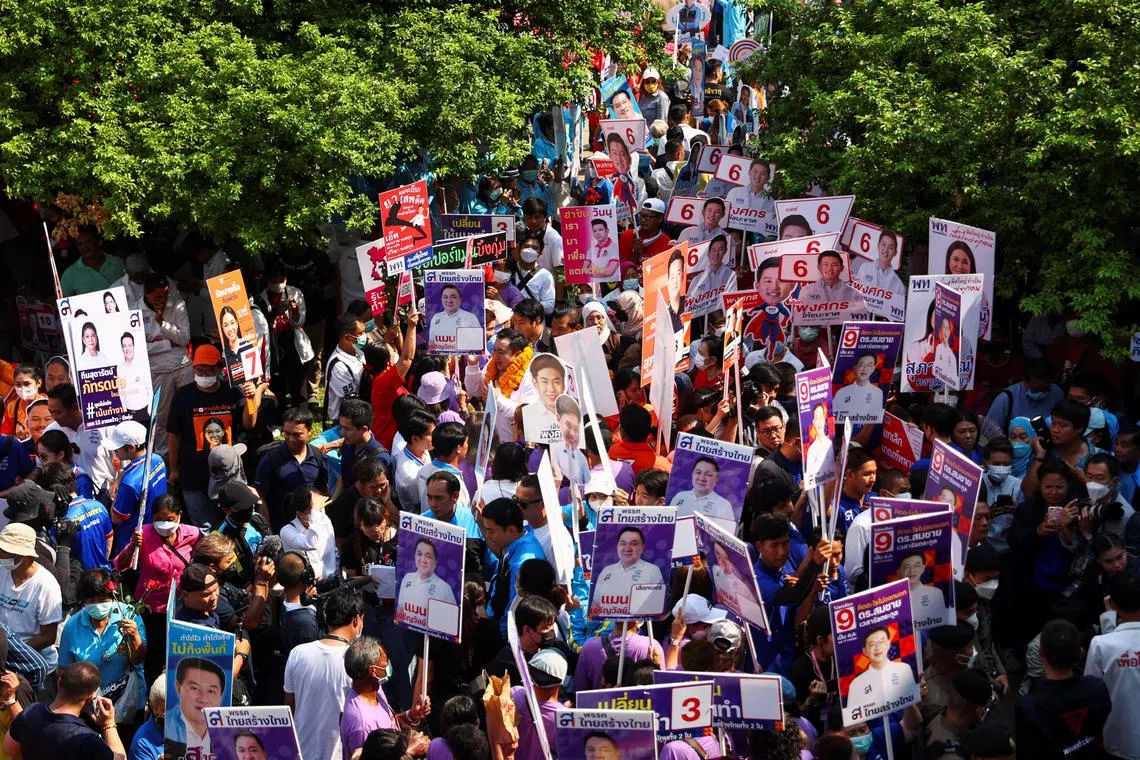ST Explains
How Thailand’s general election works
Sign up now: Get insights on Asia's fast-moving developments

Supporters gathered as candidates applied to contest Thailand's upcoming general election at the registration centre in Bangkok on April 3.
PHOTO: REUTERS
BANGKOK - Thailand’s general election on May 14
Parliament and the poll
Thailand’s Parliament consists of 250 appointed senators in the Upper House, and 500 MPs in the Lower House, also known as the House of Representatives.
The Lower House is made up of 400 constituency MPs and 100 party-list MPs.
On May 14, voters will elect candidates to the Lower House for a four-year term.
Two-ballot system
Each voter will get two ballots:
1. Constituency vote to select the district MP
There are 400 seats representing the 400 districts. The candidate with the most votes for that district wins the seat.
2. Party-list vote to pick the preferred party on a national level
The 100 party-list seats are distributed proportionately, based on the percentage share of votes each party gets in this category.
Forming the government
The official results of the election must be declared within 60 days of May 14.
In the event that no party wins a majority to form a single-party government, parties will need to ally with others to form a coalition government of at least 251 of the 500 Lower House seats.
In the 2019 election, Pheu Thai Party won the most seats with 136 MPs
The military-linked Palang Pracharath Party, which won 115 seats, then cobbled together another 139 seats from 18 other parties to form the government.
Parliament chooses the prime minister
Before the polls, each party can nominate up to three PM candidates. These individuals need not be an elected MP.
Only candidates from parties that win at least 25 seats will be considered.
The elected MPs and appointed senators from the Upper House will take a joint parliamentary vote for the PM.
To win, a candidate needs a simple majority of at least 376 votes.



